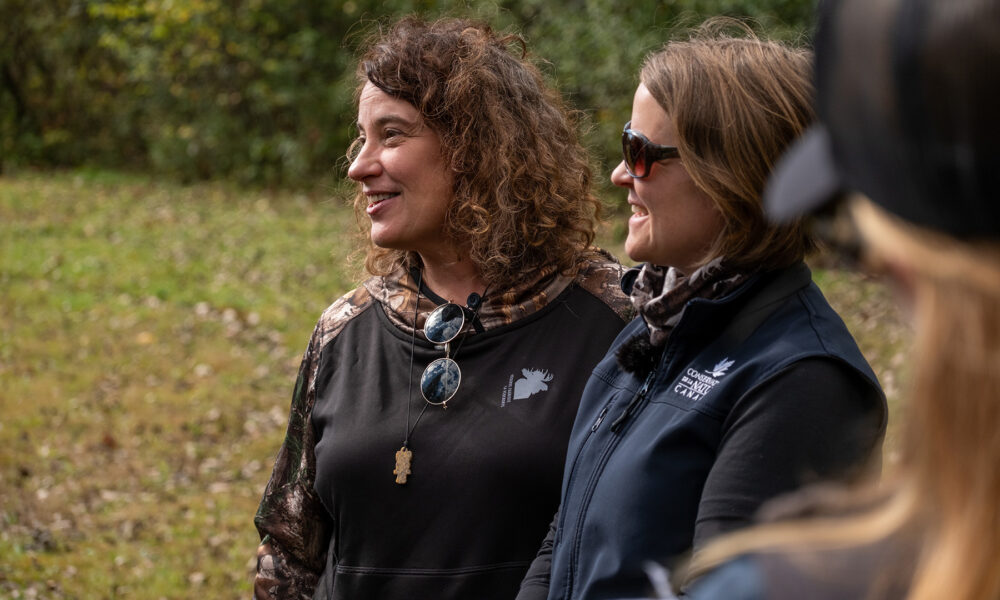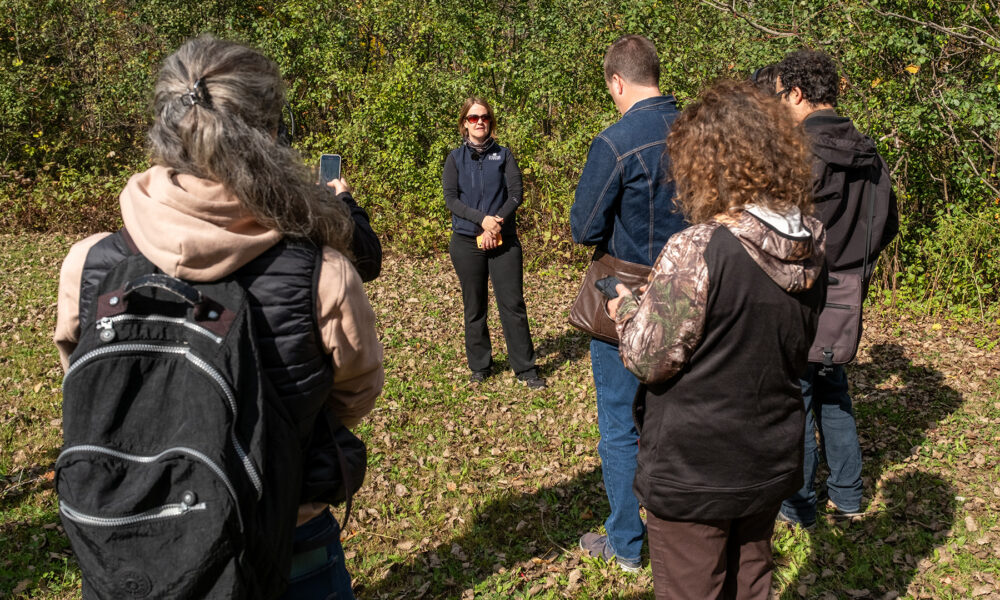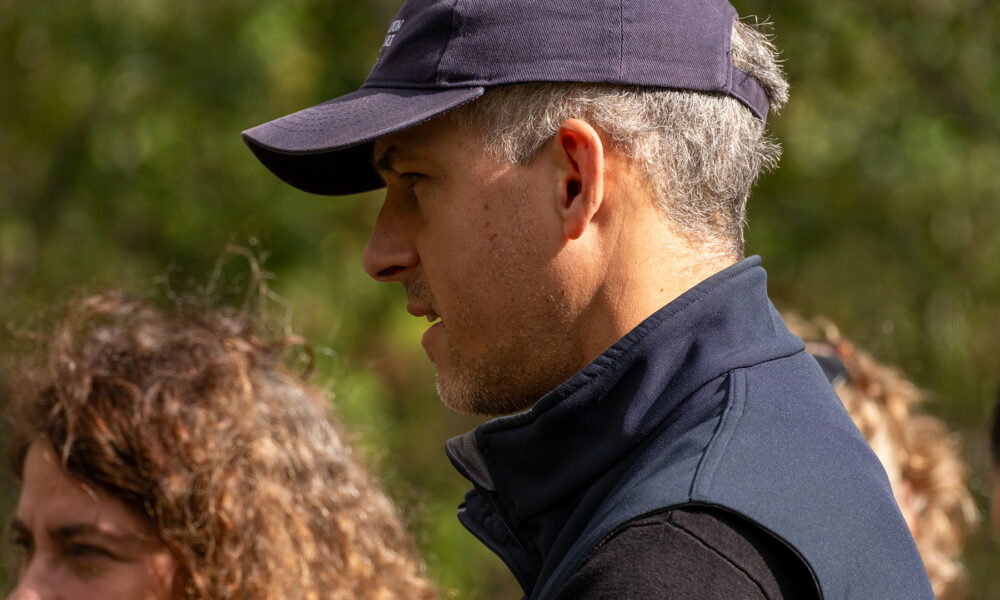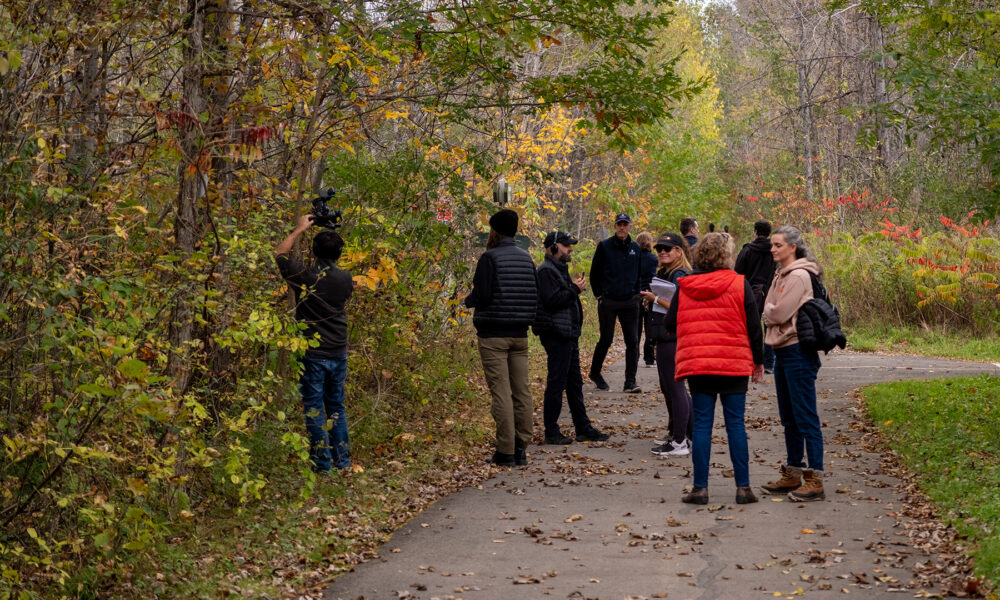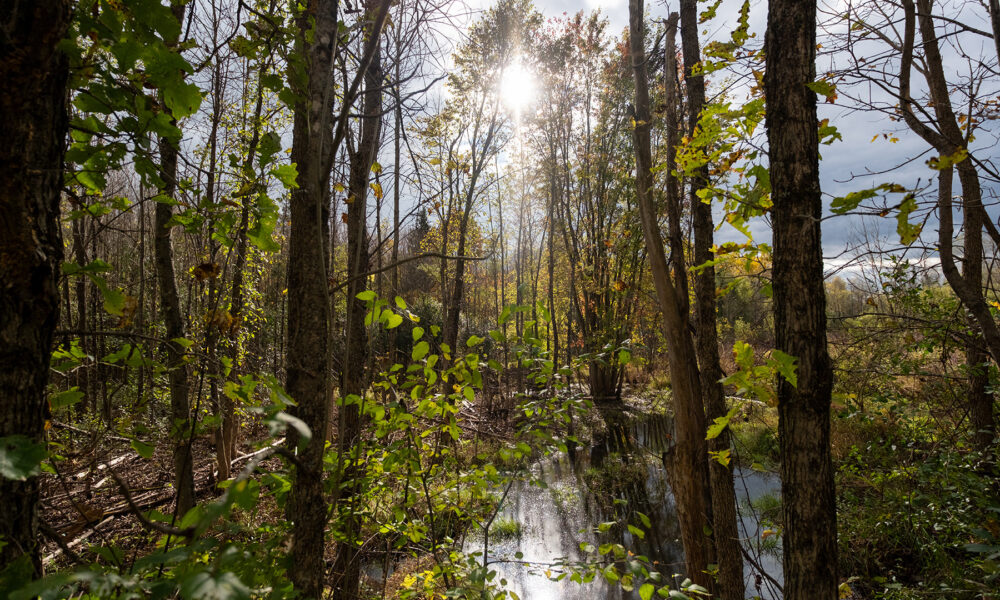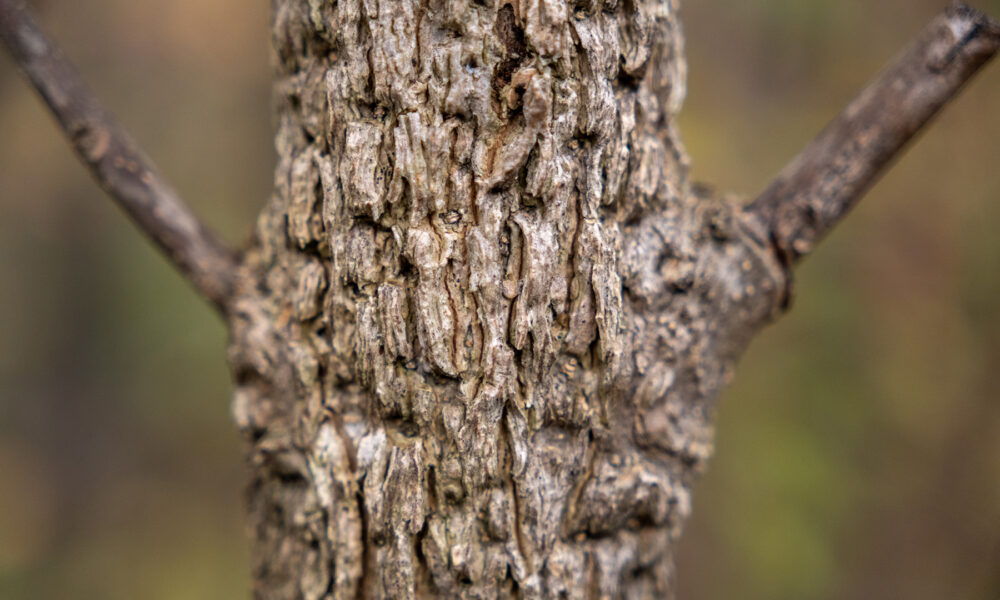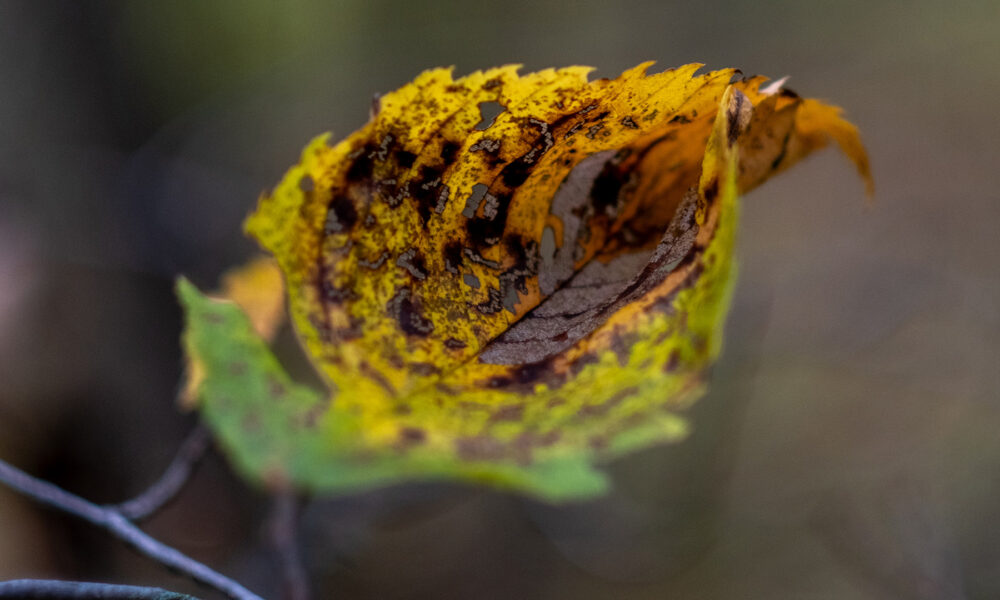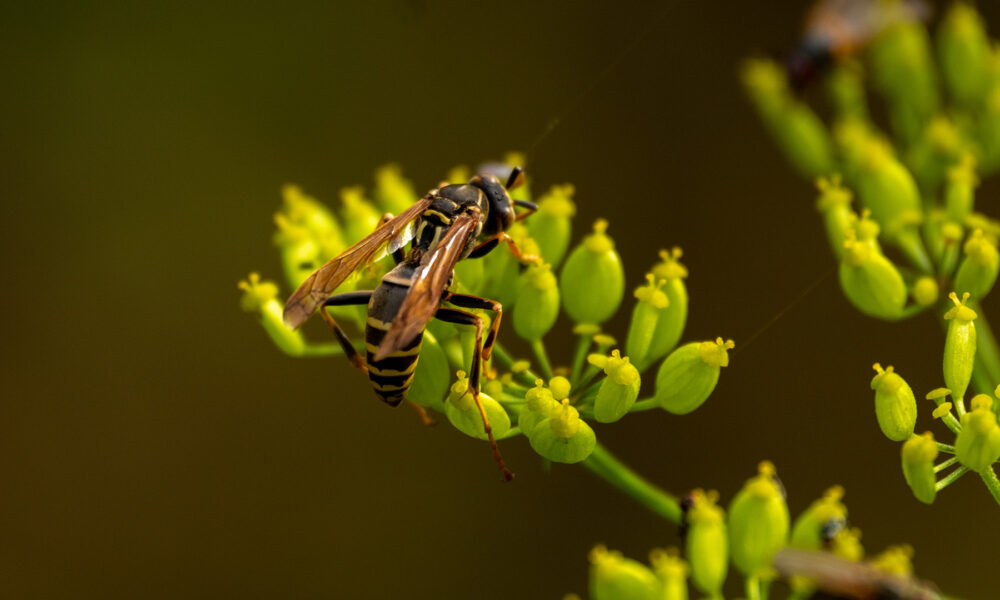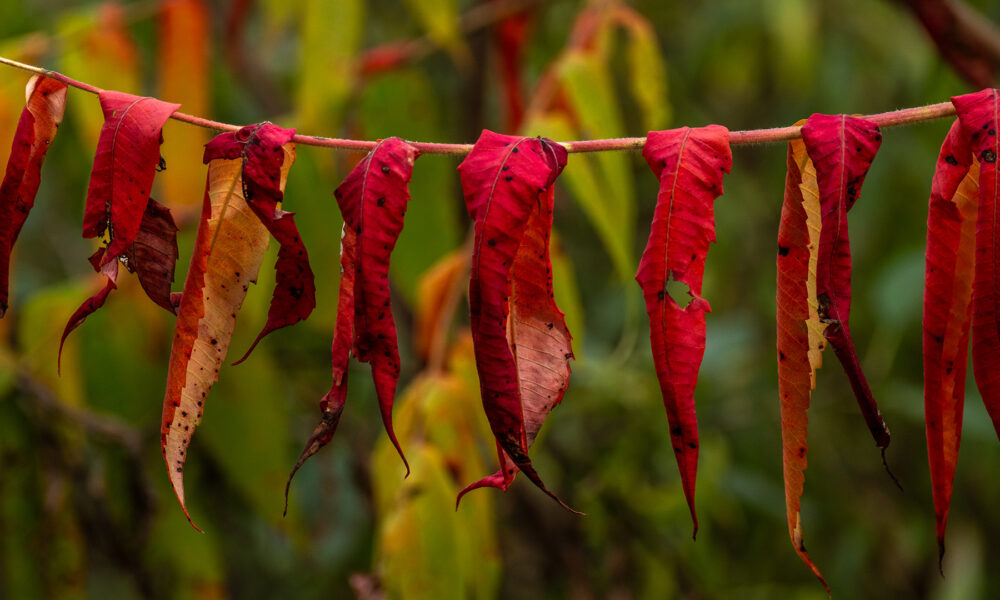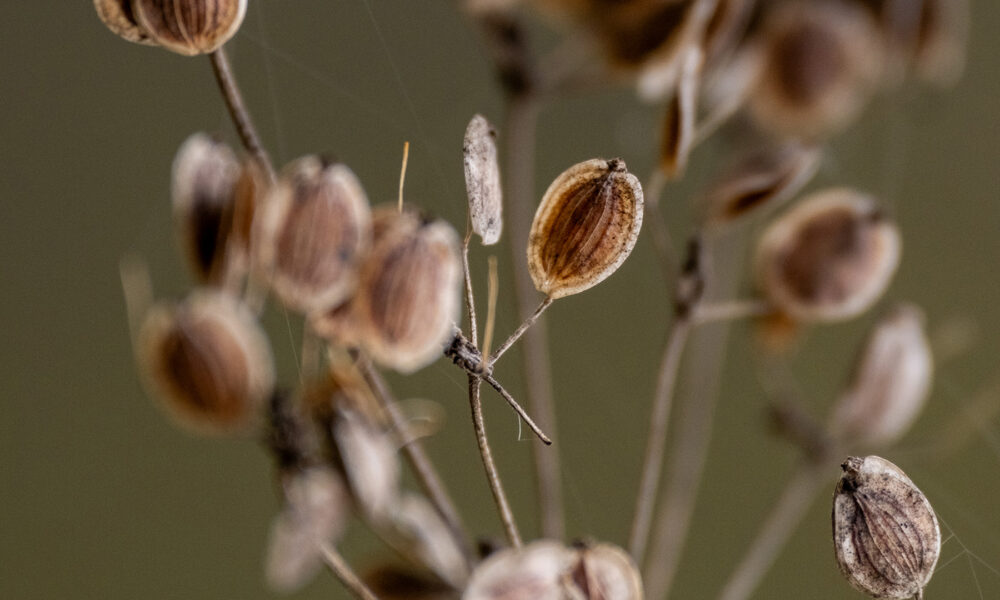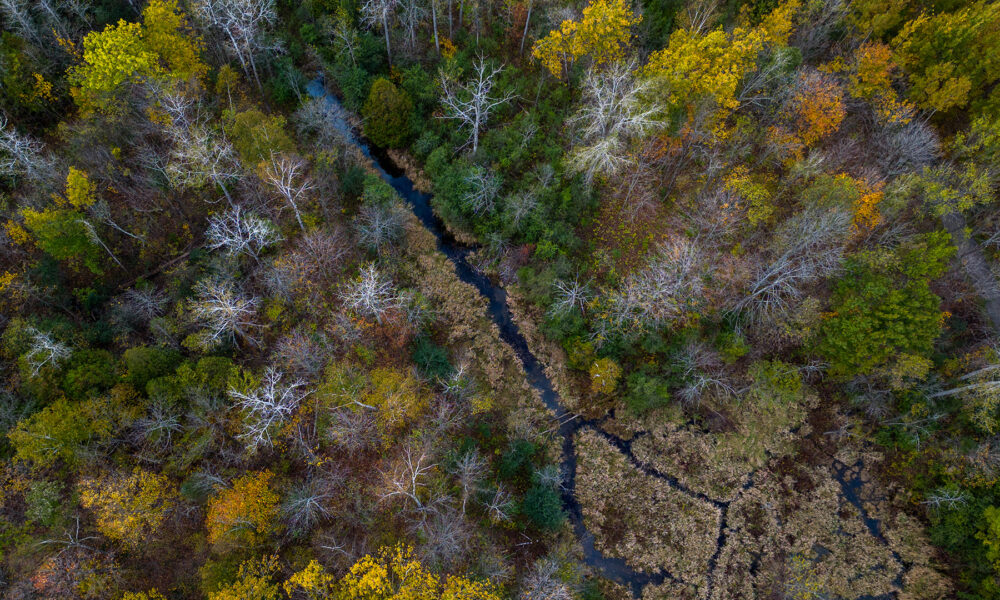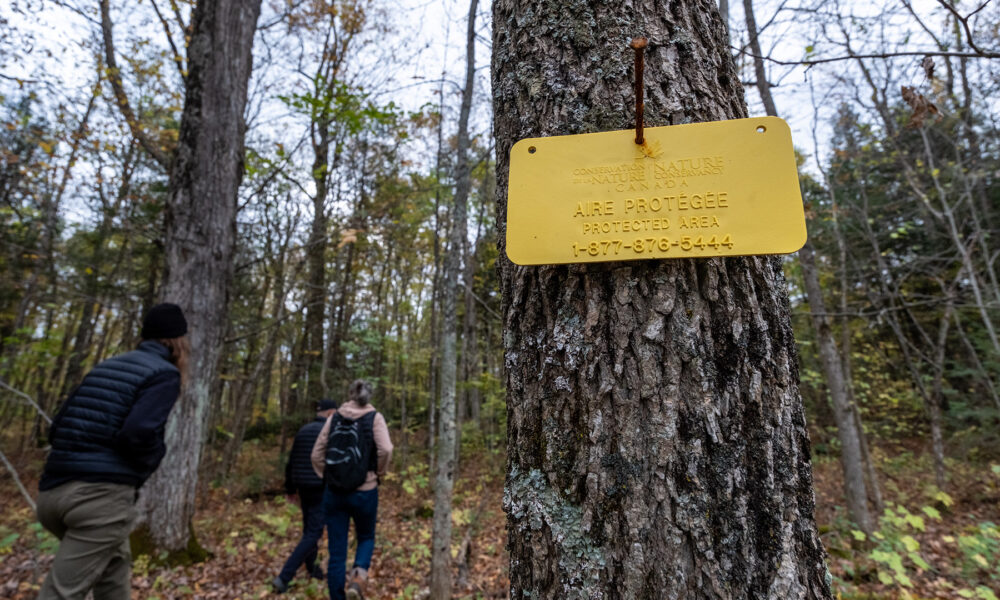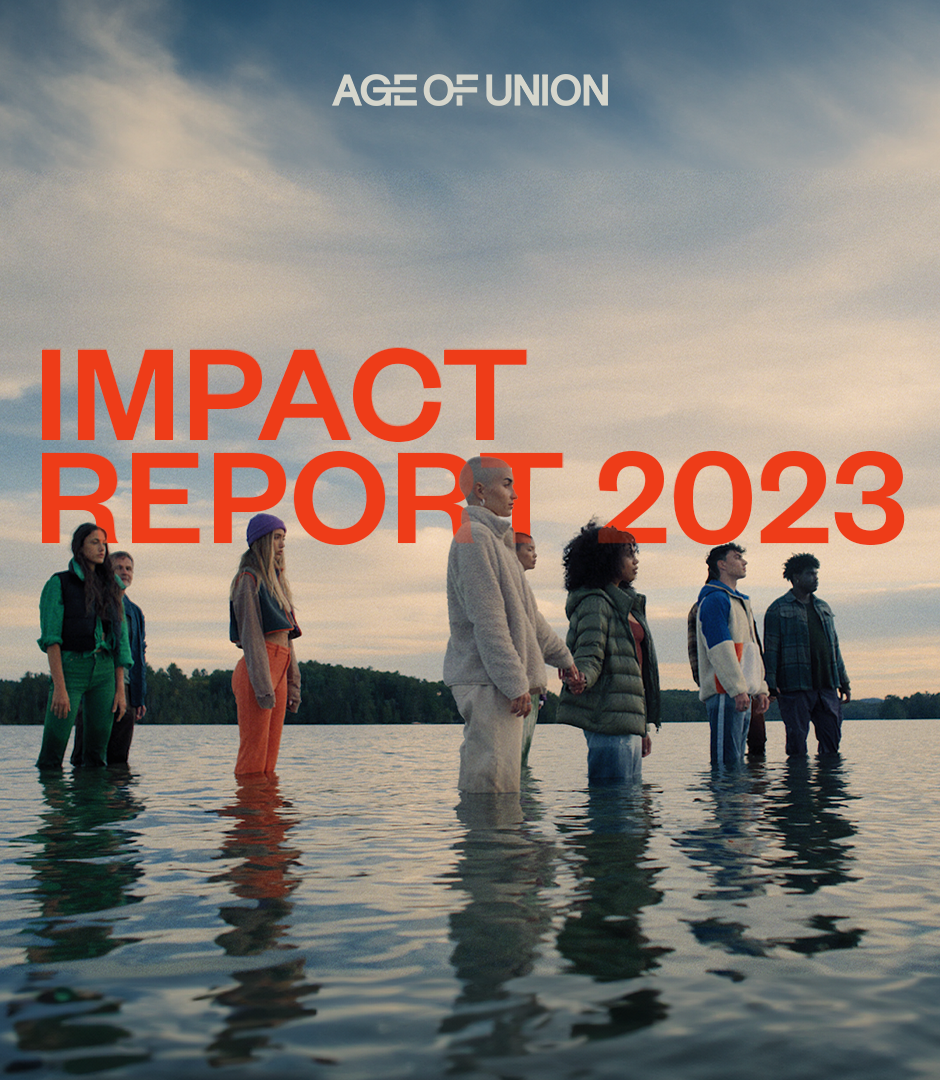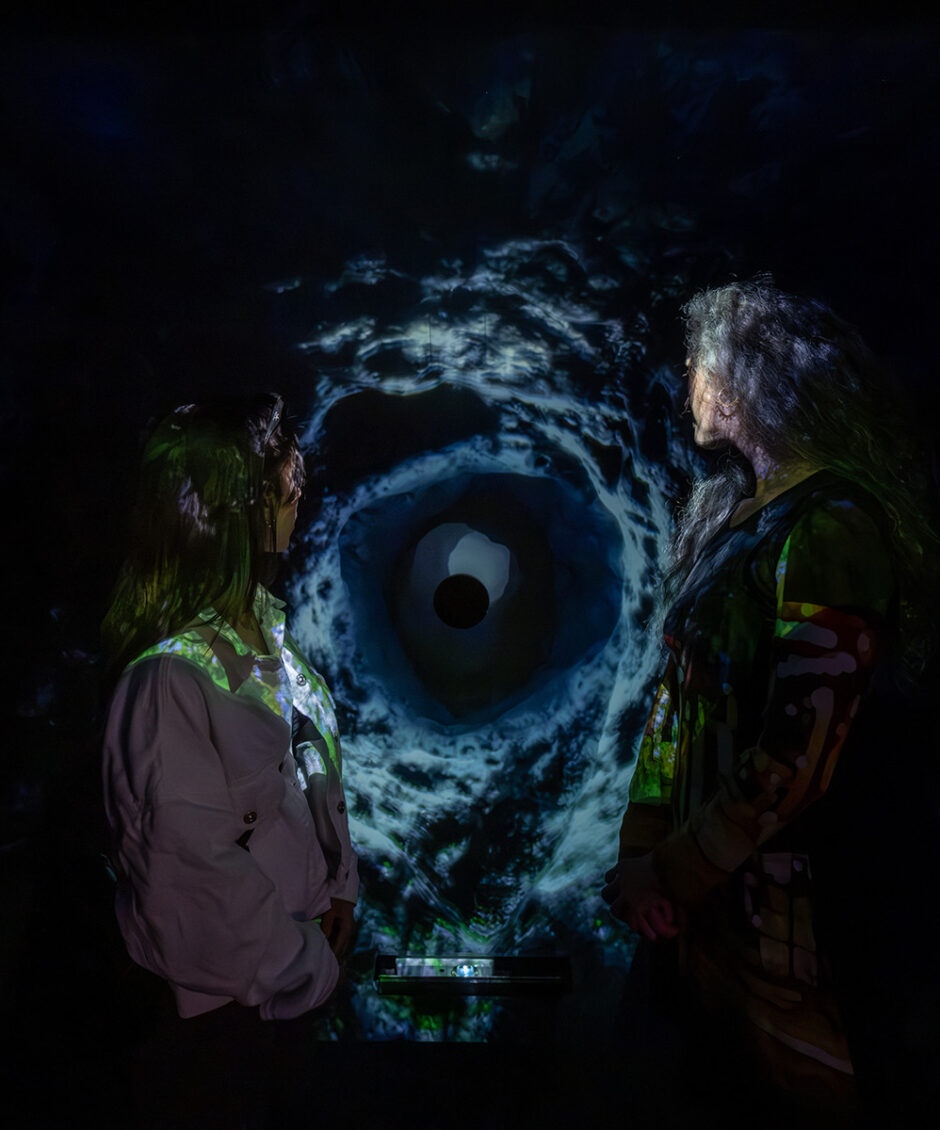Expansion of Protected Forest and Wetland in Quebec Marks a Milestone in Collaborative Conservation
Article
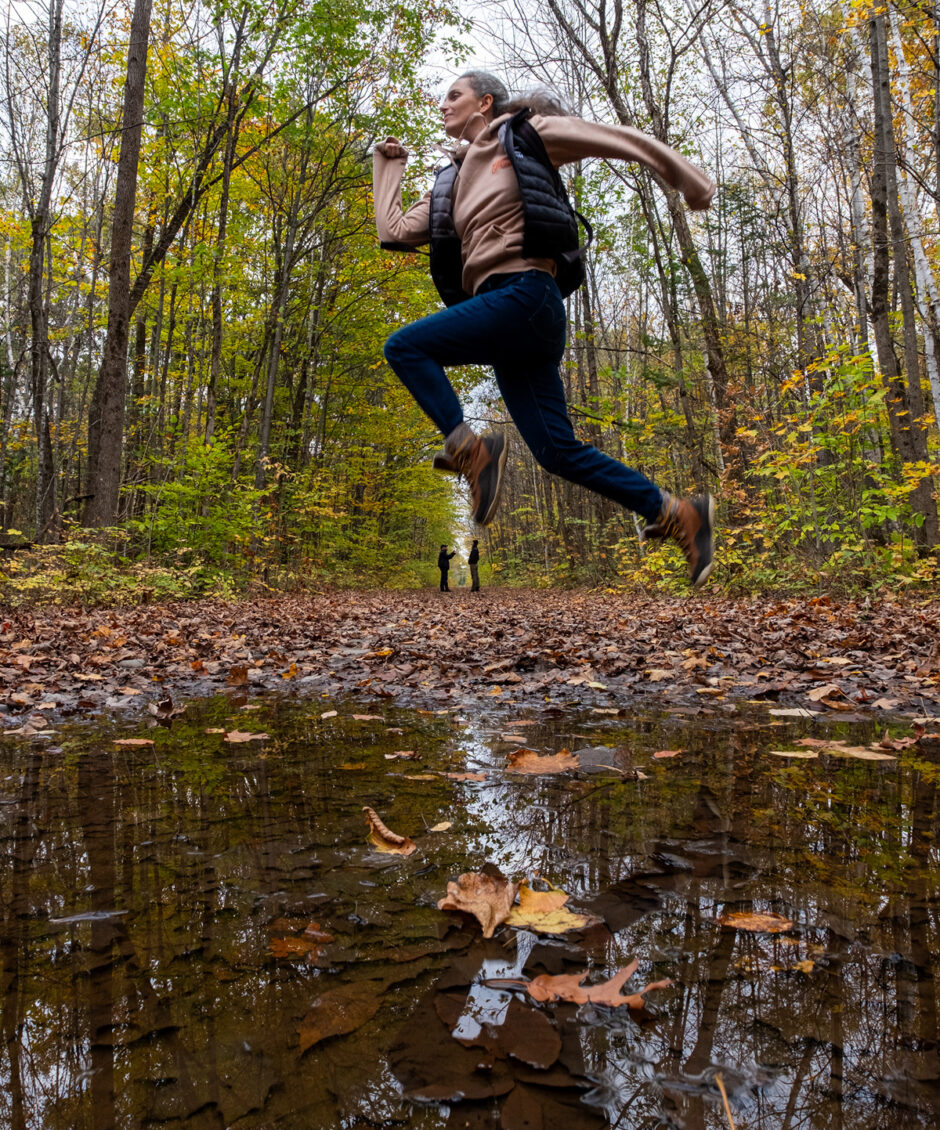
The Nature Conservancy of Canada (NCC) is adding 202 hectares of forest and wetlands to its network of protected land in southern Quebec, with funding support from several partners, including Age of Union. The conservation of the rich Boisé Carillon embodies the evolution of a successful collaboration in which both partners grow together to adapt to new realities.
Author
Jean-Philip Rousseau
Topics
The small group sets off down the trail. Annie Ferland leads the way, followed by a dozen people. On each side, half-bare trees display as much October colour as possible. Slivers of orange, splashes of red. Lots of yellow.
Some dozens of steps later, Annie Ferland stops and turns around. She’s holding a piece of autumn in her hand, showing it to the group.
“It’s a black maple leaf,” explains the Nature Conservancy of Canada (NCC) project manager. Group members had probably recognized the species, but the shape of the leaf, though common here, deviates from what Canadians are most familiar with.
“The leaf is wider, the lobes are shallower, and the bottom ones are less pronounced,” points out Ferland. She speaks to a captive audience, all eager to learn more. Among them were a few journalists, the MPP and a small delegation from Age of Union.
“This is a cork elm,” she continues a little further on. Everyone watches her touch the trunk and feel its texture. “It’s still a small tree with a rather small trunk. You can see the cracks here; they’re raised, and the texture is really corky. It’s a very, very light wood.”
Black maples and cork elms are fighting for survival in the eastern Canadian province of Quebec, mainly due to the loss of forest habitat. These two species, the first classified as “vulnerable” and the second as “threatened,” perfectly illustrate the ecological value of the surrounding woodland.
“This forest is exceptional,” boasts Ferland. “It’s a temperate hardwood forest with several species at the northern limit of their geographic distribution. This is woodland of great, great integrity.”
Calling All Conservationists
The area is called Boisé Carillon, a nod to the hydroelectric dam and power station located a few hundred meters away on the Ottawa River.
The NCC invested $1.15 million to purchase the property from a developer who could not build on it. The provincial government referred the developer to NCC—Quebec paid 60% of the acquisition costs, while other private partners, including Age of Union, helped complete the financing.
Ultimately, the land’s very nature became a conservation catalyst, as 55 of Boisé Carillon’s 202 hectares are wetlands. What had been an obstacle to real estate development is, in fact, an invaluable ecological asset, situated close to a significant river and in a densely populated area close to Montreal, Canada’s second-largest city, and Ottawa, the federal capital.
For local MPP Agnès Grondin, who doubles as parliamentary assistant to Quebec’s Minister of the Environment, this collaboration between the government, a real estate developer, an NGO and private partners is evidence of a changing mindset.
“I often say to elected officials: ‘We can grow something other than houses,’” she asserts. We all have an impact on biodiversity, whether we’re a citizen, a municipality, a private company or a foundation. It’s a collective responsibility.”
Grondin believes that the floods that hit the Laurentians, first in 2017 and again in 2019, shifted attitudes.
“This makes partners like NCC particularly interesting when proposing alternative scenarios,” she continues. They allow us to see natural solutions for adapting to climate change. I love to hear Annie say that we’re going to supervise things and ensure the safety of both nature and users,” stresses the MPP.
Keeping Conservation Fun
“The ATV trail runs through the land, correct?” asks a journalist. “Will it be maintained to allow quad drivers to practice their sport?”
It’s an important issue to the local community, as all-terrain vehicles (ATVs) are very popular in the area.
“We’re in talks with the club Les Montagnards du Nord,” replies Ferland. The goal is to allow as much access as possible while avoiding trail exits.”
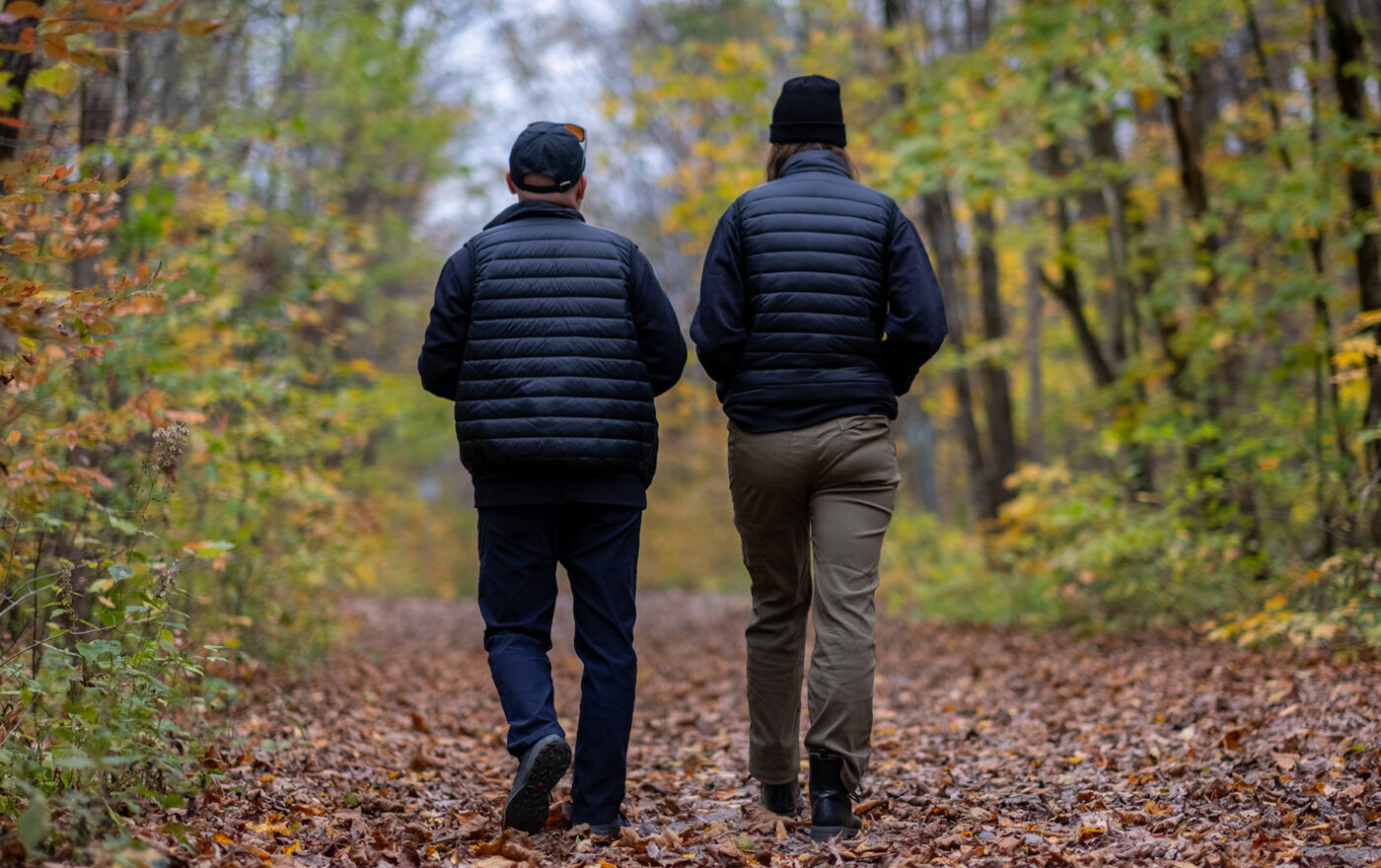
The collaboration between NCC and Les Montagnards du Nord has already proved fruitful. Over the past two summers, quad riders have proved invaluable in helping to clean up the Boisé Carillon. They helped clear 4,000 kg of garbage from the site using their ATVs.
With this massive undertaking completed, everything is in place for the next one. Several hundred thousand dollars are now needed for habitat restoration and the development of access points, such as trails.
“Ensuring a meaningful experience for hikers while protecting the integrity of the ecosystems is a delicate balance to strike,” notes Ferland. “Given the area’s predominant vocation as a conservation area, we’ll be able to allow low-impact activities.”
A leader in the St. Lawrence River
Protecting fragile ecosystems remains NCC’s top priority. The 202 hectares of Boisé Carillon build upon the 200 hectares recently announced for Baie-Saint-Paul in the Charlevoix region. In total, the St. Lawrence River Project, a partnership between NCC and Age of Union, has enabled the purchase of a network along the St. Lawrence River. Boisé Carillon is the first property in this project to move away from the immediate riverfront.
“For us, the fact that 25% of Boisé Carillon’s surface area consists of wetlands is rare,” insists Julien Poisson, NCC Director, Southern Quebec.
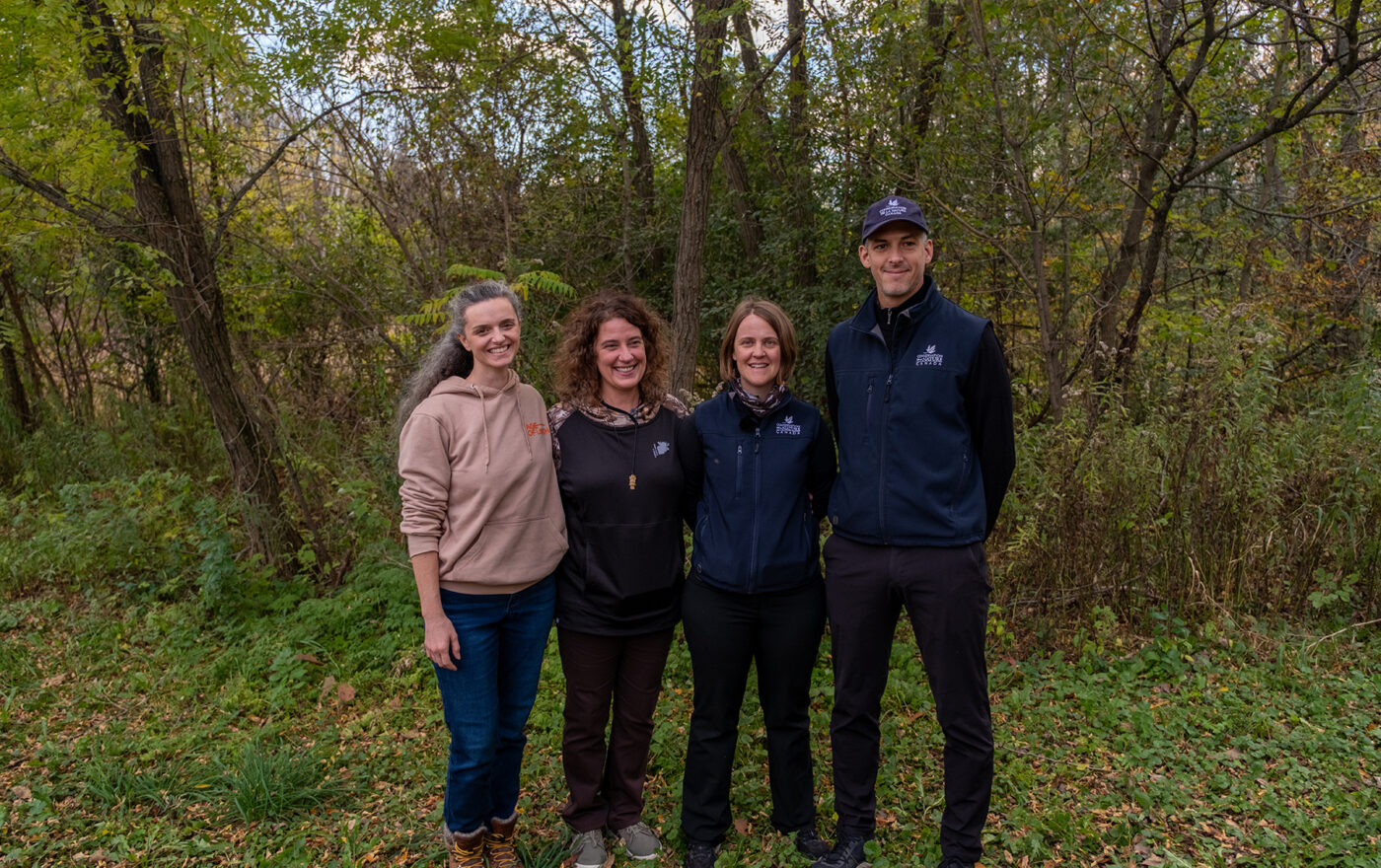
“These areas have critical ecological importance and are linked in one way or another to the river,” adds Mariette Raina, Conservation Project Manager at Age of Union. “That’s why they need to be protected. That’s why Age of Union got involved.”
This consensus on the value of venturing slightly inland from the St. Lawrence illustrates the kind of collaboration that thrives when both partners are on the same wavelength.
“The fact that a major donor wanted to work on the river enabled us to structure a project,” continues Julien Poisson. We devised a big, unifying initiative based on Age of Union’s plan.”
NCC’s vast project is designed to meet the challenges that vary enormously along the river’s hundreds of kilometres. Further west, we are dealing with freshwater and metropolitan areas; further east, with saltwater and more rural coastal regions.
Amid all this, Age of Union is proud to have been an important component of NCC’s transformation into the leader of the St. Lawrence in Quebec. For the environmental alliance, growing from this partnership is equally important.
“We’re learning a great deal from them,” says Mariette Raina, Age of Union’s Conservation Director. “Our exchanges are human, based on ideas and values. We also learn how to remain agile and evolve as climate and environmental challenges evolve and change.”
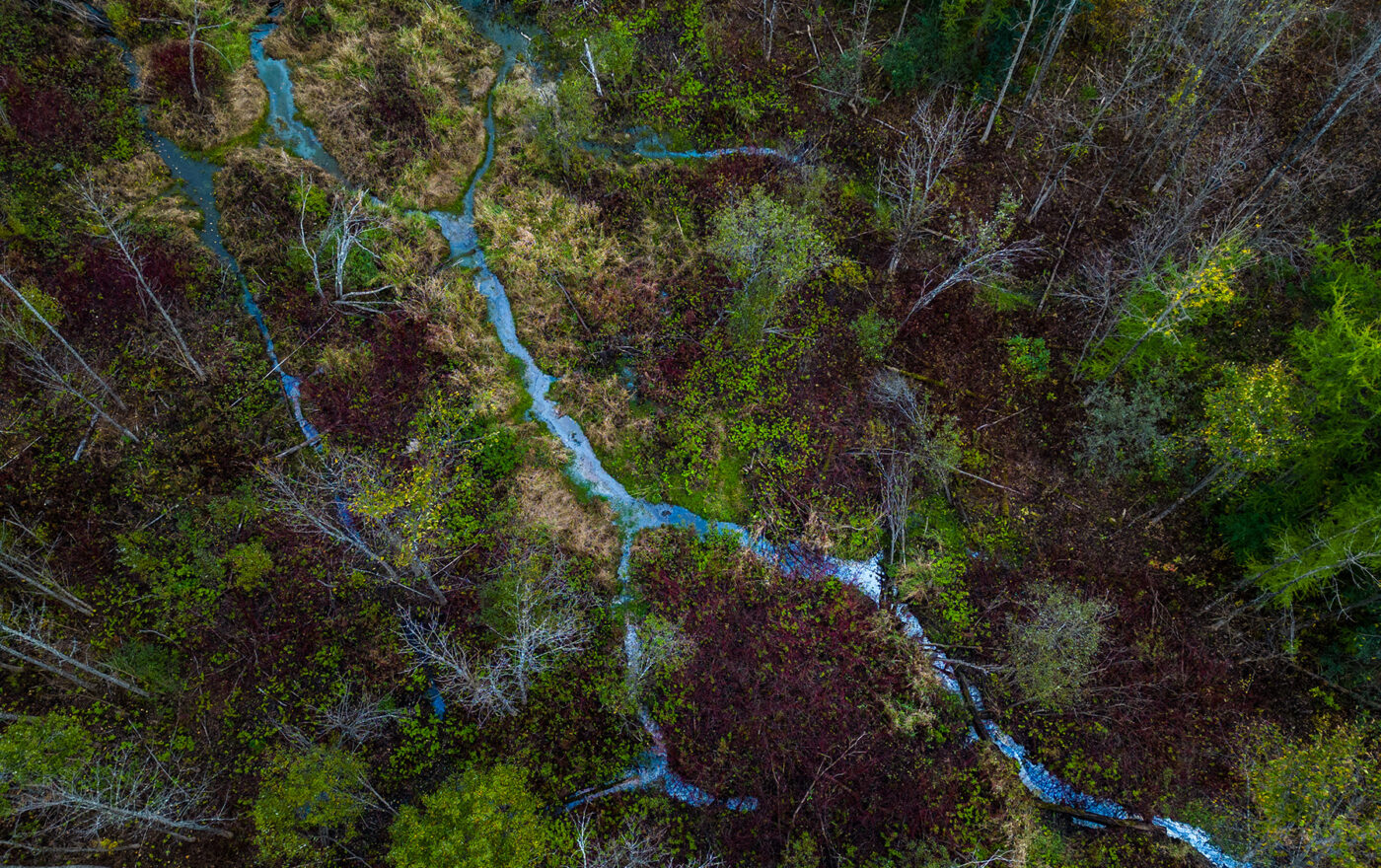
Credits
Stephane Desmeules
Topics
Article written by
Jean-Philip Rousseau
Translation
Stephanie Marois
Related
articles
Black Hole Experience, News
Black Hole Experience Premieres at C2 Montreal
News
Age of Union Alliance Unveils The Black Hole Experience, a Mobile Immersive Exhibition and Reset for Humankind
News
Age of Union Alliance Releases First Impact Report on Global Conservation Achievements Since Launch
Project
More articles
Black Hole Experience, Explainer
What Black Holes Can Teach Us About Nature and Spirituality
Black Hole Experience, News
Black Hole Experience Premieres at C2 Montreal
News
Age of Union Alliance Unveils The Black Hole Experience, a Mobile Immersive Exhibition and Reset for Humankind
News
